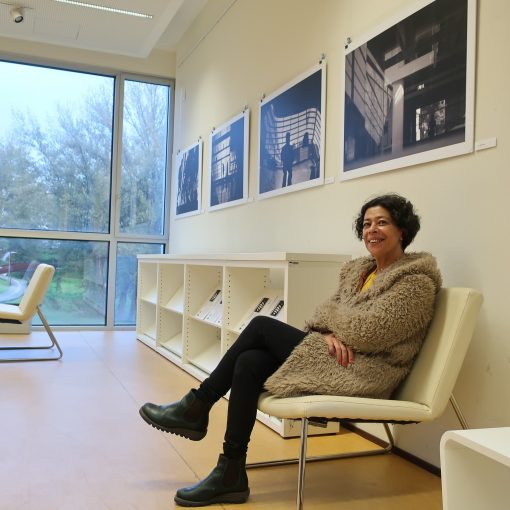HERTECH is presented online today at 6pm and wants to minimize gender inequalities in engineering and technology
The School of Engineering of the University of Minho presents this Wednesday the HERTECH network, which aims to share experiences and knowledge among current, former and future students in the area. The project seeks to minimize the gender inequalities existing in most engineering courses, to clarify high school students about the areas of engineering and technology and also to raise awareness in the community.
HERTECH will be presented at 6pm, live in its facebook, by Carolina Pereira, a textile engineering student at UMinho and one of the founders of the initiative. It will be followed by the panel “Teleworking of genres”, with Romana Ibrahim (Women in Tech Ambassador in Angola and creator of the Keep Warranty app), Victor Barros (professor at the universities of Minho, São Paulo and Federal do Espírito Santo, Brazil) and Sónia Machado (student of Polymer Engineering and vice-president of the UMinho pole of the IEEE Student Branch world network). The moderation is headed by Filomena Soares, professor of the Department of Industrial Electronics at UMinho and co-founder of HERTECH. Internet users may ask questions and the closing time is at 8pm.
HERTECH – EEUM Women’s Network is based at the Azurém campus in Guimarães and intends to promote dynamics with secondary schools, lectures with success cases, trainings, contact and job offers lists, a mentorship/tutorship program and volunteer actions. “We want to break the stigma of women’s presence in the technological area, increase their number through the elucidation of students from the 3rd cycle and high school, as well as share, among women of various ages and areas, new perspectives on the multiple aspects of engineering”, explain Carolina Pereira and Filomena Soares. Those responsible consider that the attractiveness of engineering is growing in the female public and this is not only due to the good employability of some courses. On the other hand, the gender balance “helps to broaden horizons” in projects and “contributes to a more just society”.
In the last decade and a half, the number of female students at EEUM has risen from 23% to 28% of the total, according to a study coordinated by professor Isabel Ramos. In the last school year, 30% of the 4500 undergraduate and master’s degree students at EEUM were women and only four of the 14 courses had female predominance – Fashion Design (93%), Biological Engineering (79%), Biomedical Engineering (64%) and Textile Engineering (55%). The male domain was more noted in Industrial and Computer Electronics Engineering (92%), Mechanical Engineering and Computer Engineering (both with 87%). According to Eurostat, of the 18 million scientists in the world in 2017, 41% were women. In the EU, scientists and engineers were most present in Lithuania (57%), Bulgaria, Latvia (both with 53%) or Portugal (51%) and less present in Finland (29%), Hungary and Luxembourg (both with 25%).



